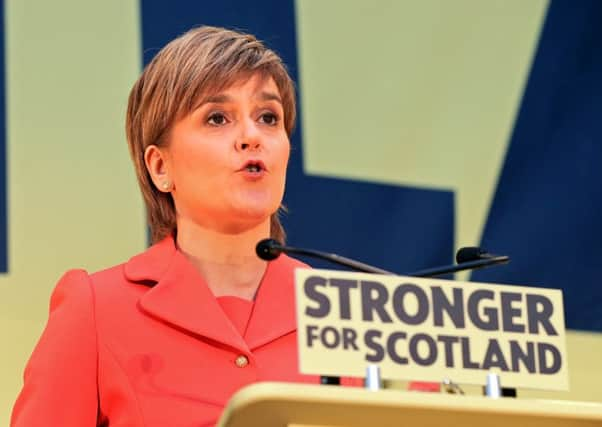Stephen Hay: Taxing questions for the SNP
This article contains affiliate links. We may earn a small commission on items purchased through this article, but that does not affect our editorial judgement.


However, if the rest of the UK increases the top rate then the SNP would support that policy for Scotland.
• READ MORE: SNP manifesto: the ten key pledges
Therein lies a number of questions regarding control and tax avoidance which need to be addressed. But first it should be mentioned that the total tax raised in Scotland from the 1 per cent of Scottish taxpayers who would be eligible to pay the proposed higher tax rate will be no more than £200 million which, with an annual deficit of about £12 billion, is hardly going to make a dent in the Scottish budget.
Advertisement
Hide AdAdvertisement
Hide AdHowever, if the SNP supports the move to raise the top rate of tax, why hasn’t the party used devolved powers to do so? It cannot be because it does not control the rules on tax avoidance in Scotland because it already has the General Anti-Avoidance Rule (GAAR).
This forms part of the Revenue Scotland and Tax Powers Act 2014 and allows Revenue Scotland to “take counteraction against artificial tax avoidance schemes”. So if changes to the higher tax rate lead to an increase in tax avoidance then Scotland already has the power to take action to stop it.
So does avoidance actually mean migration? Where the 20,000 Scots who pay the top rate will sell their homes and move their families from Scotland to an alternative tax jurisdiction to avoid a 5p increase on their non-savings income.
If that is the reason then why not make this clear as migration is not a form of tax avoidance that the Scottish Government will ever be able to control?
And if it is migration which is holding back the SNP from raising the top rate of tax, where is the value in devolved taxation if Scotland has to wait and see what Westminster proposes before taking action?
If Westminster raises the top rate to 50p then the SNP will do likewise. So what if they were to lower it to 40p? Would the Scottish Government follow or would they keep the current rate of 45p and risk migration as they do now?
Advertisement
Hide AdAdvertisement
Hide AdIt seems that having been given the devolved income tax powers it has made little difference in Scotland so far, and renders devolution in that respect redundant for the time being.
• Stephen Hay is a tax partner at accountant and business adviser RSM